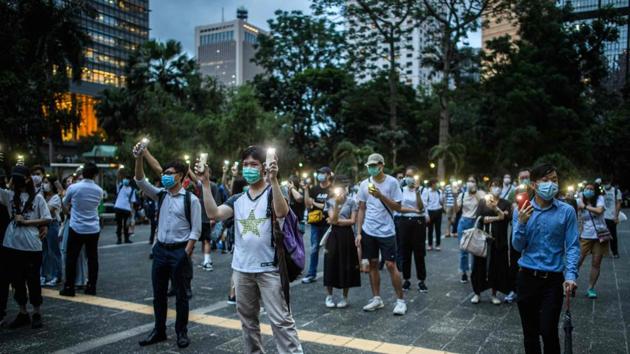Still time for China to reconsider Hong Kong security law: UK
Foreign secretary Dominic Raab said he remained “deeply concerned” by China’s intention to implement the security law on Hong Kong. According to him, this would undermine the ‘One country, two systems’ framework agreed at the time of the former colony’s 1997 handover.
There is still time for China to reconsider, step back from the brink and respect Hong Kong’s autonomy and respect its international obligations, the Boris Johnson government said on Thursday, referring to Beijing’s plan to extend a security law to the former British colony.

Foreign secretary Dominic Raab said he remained “deeply concerned” by China’s intention to implement the security law on Hong Kong. According to him, this would undermine the ‘One country, two systems’ framework agreed at the time of the former colony’s 1997 handover.
Raab wrote in a foreword in the Foreign Office’s latest six-monthly report on Hong Kong to parliament: “As I announced to parliament on June 2, if China enacts this legislation we will amend the arrangements for those with British National Overseas status in Hong Kong”.
“If China follows through with its proposed legislation, we will put in place new arrangements to allow BN(O)s to come to the UK without the current 6 month limit, enabling them to live and apply to study and work for extendable periods of 12 months, providing a path to British citizenship”, he added.
Beijing has rejected London’s criticism as interference in China’s internal affairs. Prime Minister Johnson has also confirmed London’s intention to offer BNOs a path to British citizenship if Beijing implemented the security law in Hong Kong.
According to Raab, public trust in the Hong Kong police is allegedly at an all-time low. The UK, he wrote, will not look the other way when it comes to the people of Hong Kong, will stand by them and will live up to its responsibilities.
“For the Chinese Government, rather than Hong Kong’s own institutions, to directly impose national security legislation would lie in direct conflict with Article 23 of Hong Kong’s Basic Law, and with China’s obligations under the Sino-British Joint Declaration”, Raab wrote.
“At the time of writing, we have not seen the text of the legislation. However the law, as it has been described, raises the prospect of prosecution in Hong Kong for political crimes, which would undermine existing commitments to protect the rights and freedoms of the people of Hong Kong”, he added.






